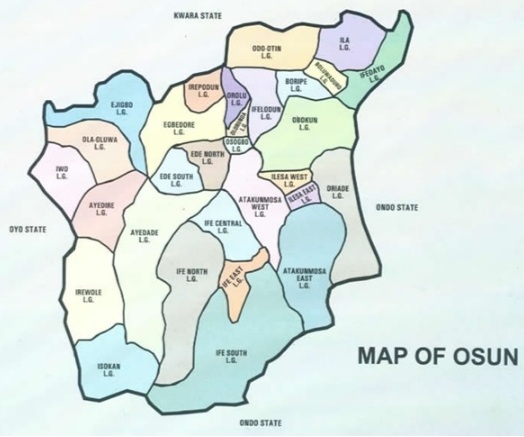By Tunde Olamilekan
Stakeholders have called for the protection of children and women in communities where the Rural Access and Agricultural Marketing Projects (RAAMP) will take place in Osun State.
The stakeholders sought a unified referral framework that ensures that survivors of Gender violence during the projects can access timely and confidential services.
They made the appeal during a 2-day training/meeting to kickstart the second quarter of operations of the Osun RAAMP GBV project.
The training, organised by the Center for Gender, Women and Children in Sustainable Development (CGWCSD) in collaboration with the Osun State Project Implementation Unit (SPIU), held in Osogbo, the capital of Osun State, was to strengthen and safeguard against GBV/SEAH in development projects and ensure accountability in community engagements.
On the first day of the two-day event, staff and contractors of Osun-RAAMP/SPIU were trained on Gender-Based Violence (GBV) and Sexual Exploitation, Abuse, and Harassment (SEAH).
Sessions highlighted the risks of GBV/SEAH in infrastructure projects, emphasised the importance of survivor-centred approaches, discussed relevant legal and policy frameworks, and underlined the critical roles of contractors and SPIU staff in maintaining accountability.
Participants also engaged in case studies and simulation exercises designed to enhance their capacity to respond ethically and effectively to real-life situations.
On the second day, representatives of major ministries, departments, and agencies of government, the Nigeria Police Force, the Nigerian Civil Defence Corps, the National Agency for the Prohibition of Trafficking in Persons (NAPTIP), Osun State Sexual Assault Referral Center (SARC), among others, held a meeting to strengthen the genderbased violence (GBV) referral pathway for the Osun RAMP project.
Speaking during the events, one of the facilitators, Ms Lola Adewale, emphasised that while the RAAMP aims to improve rural roads and market access, large infrastructure schemes may attract labour influxes and power imbalances that increase GBV risks.
Ms Adewale who is the Director of Gender Affairs at the Ministry of Women Welfare, Children and Social Welfare, called for zero tolerance, emphasising that project implementers must offer safe reporting channels and adherence to anti-GBV codes of conduct.
She said, “While the Rural Access and Agricultural Marketing Project (RAAMP) aims to improve rural roads and market access, large infrastructure schemes may attract labour influxes and power imbalances that increase GBV risks.
“It is important that project implementers must offer safe reporting channels, ongoing sensitisation, and strict adherence to anti-GBV codes of conduct.”
The facilitator stressed that strengthening referral pathways is both a moral and legal obligation and urged all stakeholders to commit to safeguarding project communities, especially women and children.
Follow the OSUNDOTLIFE channel on WhatsAppKindly share this story | All rights reserved. This material, and other digital content on this website, may not be reproduced, published, broadcast, rewritten or redistributed in whole or in part without prior express written permission from OSUNDOTLIFE.
Contact: editor@osun.life
WhatsApp: 📲 +2348092333666

